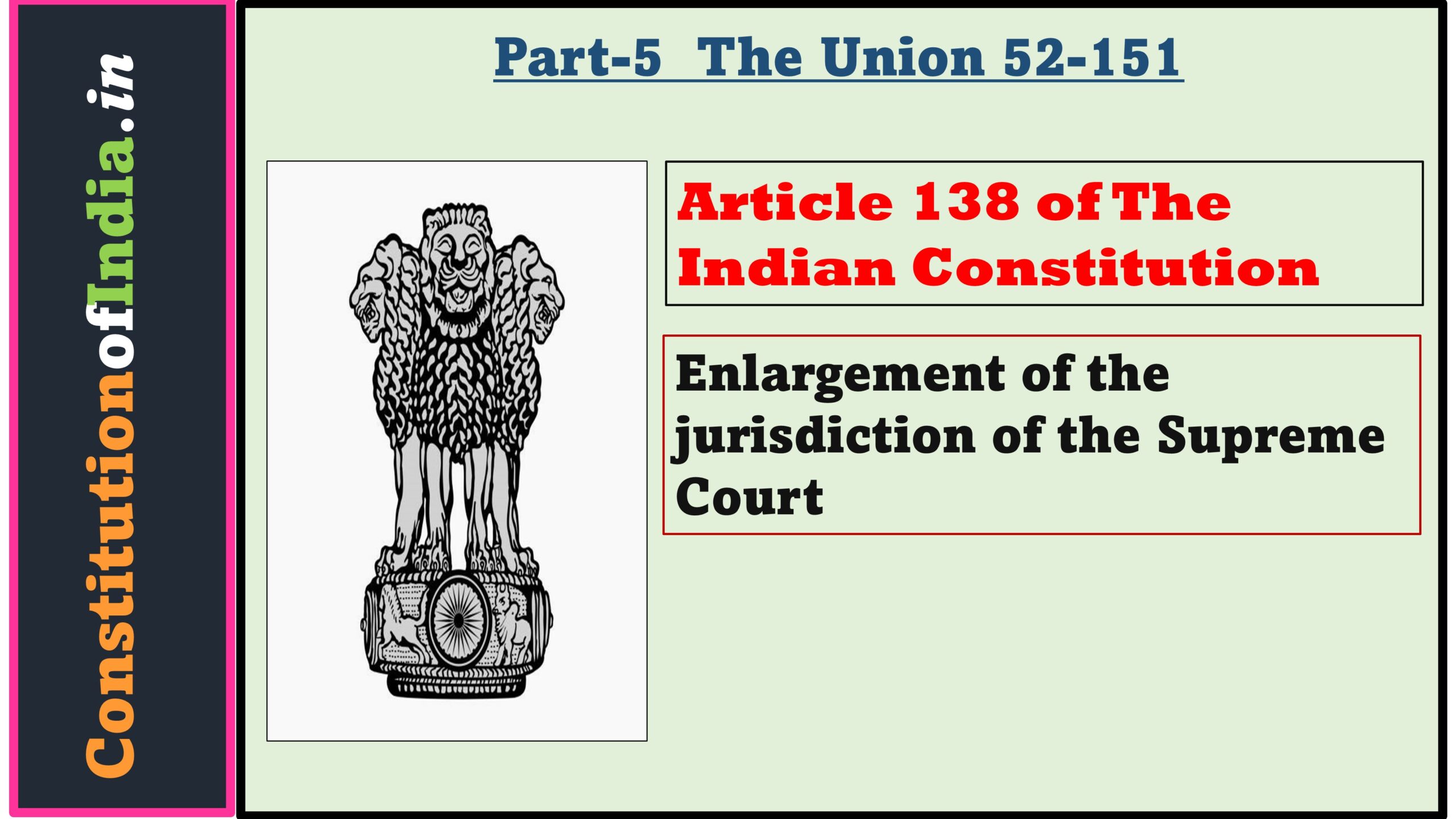Article 138 of Indian Constitution: Enlargement of the jurisdiction of the Supreme Court.

Article 138 Enlargement of the jurisdiction of the Supreme Court – Constitution Of India
(1) The Supreme Court shall have such further jurisdiction and powers with respect to any of the matters in the Union List as Parliament may by law confer.
(2) The Supreme Court shall have such further jurisdiction and powers with respect to any matter as the Government of India and the Government of any State may by special agreement confer, if Parliament by law provides for the exercise of such jurisdiction and powers by the Supreme Court.
🔹 Article 138 – Enlargement of the Jurisdiction of the Supreme Court
🔸 Clause (1): Power of Parliament
“The Supreme Court shall have such further jurisdiction and powers with respect to any of the matters in the Union List as Parliament may by law confer.”
✅ Meaning:
- Parliament has the authority to expand the jurisdiction of the Supreme Court.
- This can only be done for matters listed in the Union List (List I of the Seventh Schedule – like defence, foreign affairs, banking, etc.).
🔸 Clause (2): Power by Special Agreement
“The Supreme Court shall have such further jurisdiction and powers with respect to any matter as the Government of India and the Government of any State may by special agreement confer, if Parliament by law provides for the exercise of such jurisdiction and powers by the Supreme Court.”
✅ Meaning:
- If the Central Government and a State Government enter into a special agreement, they may request the Supreme Court to take jurisdiction over a specific matter (even if it normally wouldn’t have jurisdiction).
- However, this jurisdiction can be exercised only if Parliament enacts a law authorizing the Supreme Court to do so.
🧾 At a Glance:
| Clause | Authority | Type of Jurisdiction | Condition |
|---|---|---|---|
| (1) | Parliament | On matters in the Union List | Parliament must pass a law |
| (2) | Parliament + Agreement between Centre & State | On any matter, not just Union List | Requires: (a) Special agreement between Centre & State, and (b) Parliamentary law |
⚖️ Significance:
- Enhances flexibility in assigning important judicial responsibilities to the Supreme Court.
- Allows cooperative federalism where the Centre and States can jointly refer matters for Supreme Court adjudication.
- Ensures the Supreme Court remains the apex authority on critical national or inter-governmental issues when necessary.